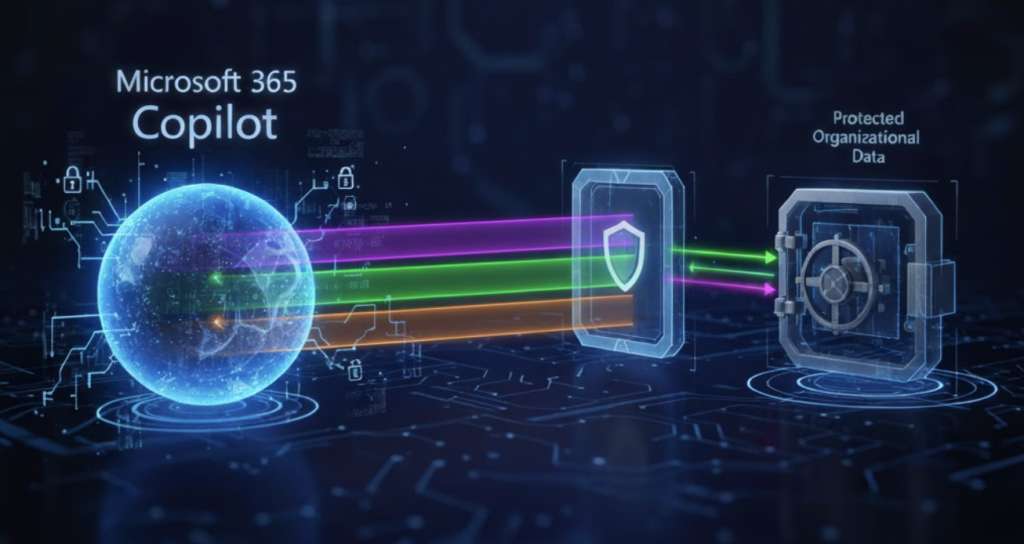![]()
Whether you plan on implementing Microsoft 365 Copilot in your organization or you have already implemented it, Copilot security should be your top concern.
With Copilot you can access and process vast amounts of your organizational data, which offers tremendous productivity benefits but also introduces new security challenges that you need to address proactively.
The recent developments in Microsoft Purview Data Loss Prevention (DLP) for Microsoft 365 Copilot mark a milestone in AI data protection, giving organizations the tools they need to balance productivity while maintaining strict data security standards. Not sure how DLP works? Keep on reading!
Understanding Microsoft Purview DLP for Copilot
Microsoft Purview DLP for Copilot fundamentally changes how organizations approach AI data security. Unlike traditional DLP solutions that focus on preventing data from leaving your organization, these policies control what data AI systems can access and process internally.
The system works by detecting sensitivity labels on content and restricting Copilot’s ability to process that information. When a DLP policy is triggered, the identified items are excluded from Copilot’s processing capabilities, though they may still appear in citations within responses.
By implementing these policies, the goal isn’t to block AI – it’s about giving it appropriate boundaries.

The Three Essential DLP Policies for Copilot
After working with organizations across various industries, we’ve identified three policies that every organization can benefit from. Here’s what we recommend:
1. Highly Confidential Data Exclusion Policy:
Honestly, if you only do one thing from this list, do this. This is the policy that will let you sleep at night. A comprehensive policy that prevents Copilot from processing any content labelled with your strictest sensitivity. This ensures that your most sensitive organizational data – financial records, strategic plans, personally identifiable information – remains completely isolated from AI processing.
2. Customer Data Protection Policy:
Essential for organizations handling personal data under regulations like GDPR or CCPA. This policy targets content with customer data classifications and prevents Copilot from accessing or analysing this information.
3. Legal and Compliance Document Policy Legal documents, contracts, and compliance-related materials require special protection due to their sensitive nature and potential attorney-client privilege considerations.
Implementation Best Practices
If you have read any of our previous blogs which mention implementation you probably already know what we are going to recommend. Yes, the “Crawl-Walk-Run” methodology yet again!
Start with monitoring mode, then gradually transition to enforcement as you gain confidence in your policy configuration.
Here’s what we’ve learned from working with clients:
- Establish clear sensitivity label taxonomies before implementing policies – one that makes sense for the end users without needing to read through pages of classification policies.
- The effectiveness of DLP for Copilot depends heavily on accurate content classification!
- Don’t skip this. We’ve seen clients get this wrong. If you lock everything down too tight, your users will just find a workaround, and you’ll be less secure than when you started
The organizations that start implementing these policies now will be best positioned to get the most out of new features as they become available.
Conclusion
Microsoft Purview DLP for Copilot represents an advancement in AI data protection. By implementing these three essential policies, you can create solid security base that protects your most sensitive information while enabling the benefits of AI-powered productivity tools.
From our experience, the investment in proper DLP configuration today will pay dividends in enhanced security, regulatory compliance, and user confidence in AI-powered workplace tools. Organizations with strong foundational policies will be best positioned to leverage new features while maintaining security.
Ready to secure your AI future? Contact us today at contact@infotechtion.com to discuss your Microsoft Purview DLP implementation strategy.



